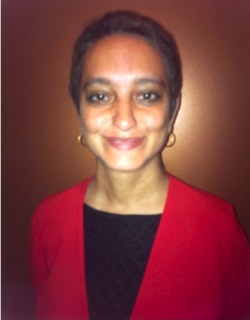

Assistant Professor, Department of Industrial Engineering
Dalhousie University
When the COVID-19 pandemic hit, Noreen Kamal was surprised by the amount of data being made available by governments and epidemiologists.
“I was amazed to see how much data around infections, recovery and deaths were available in real-time, and to have access to the work of leading epidemiologists to model infection rates,” Kamal recalls.
This got Kamal thinking about how operations research and industrial engineering techniques could contribute to these models and provide optimal solutions for policymakers. An assistant professor in the Department of Industrial Engineering at Dalhousie University, Kamal’s primary research interest is in designing and improving health care systems so that they match the progression of a disease and lead to better outcomes for patients. Amidst the COVID-19 pandemic, she is now a collaborating investigator on a project with the Nova Scotia Health Authority (NSHA) and the Natural Sciences and Engineering Research Council (NSERC).
“We are using advanced data analytic techniques in the development of decision support tools to assist with policy and public health responses,” she describes. “We will provide robust real-time data analytic tools that consider a multitude of variables to accurately model outcomes such as infection rates, mortality, and health system demand.
“The decision variables include details of population-level containment strategies such as physical distancing, quarantine levels, and travel restrictions.”
Kamal is working on this project in partnership with the co-principal investigator (Dr. Ahmed Saif), graduate students that are graduates from the industrial engineering department at Dalhousie, a researcher from the Faculty of Medicine’s Department of Community Health and Epidemiology, and the co-lead of the COVID-19 Joint Analytics Working Group at the NSHA. It’s this collaboration across disciplines like engineering and medicine that she hopes will bring success to this, and future, projects.
“As an interdisciplinary researcher, I am always promoting engineers within healthcare,” she says. “I feel that engineers have a significant amount to contribute to the health system, and I hope that this pandemic will further solidify this need.
“I hope that we can see more engineers working within the health system working alongside epidemiologists, physicians, nurses, and administrators to develop solutions to create one of the best top-performing health systems that is agile enough to respond to situations such as this pandemic.”

